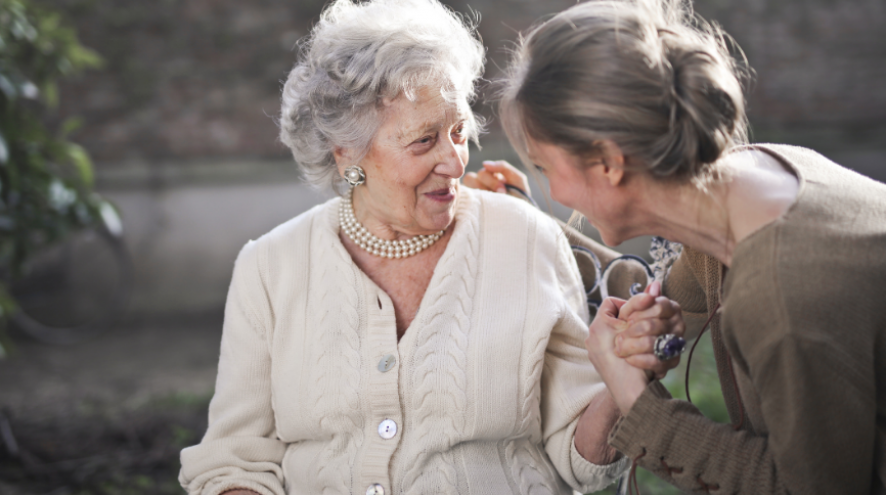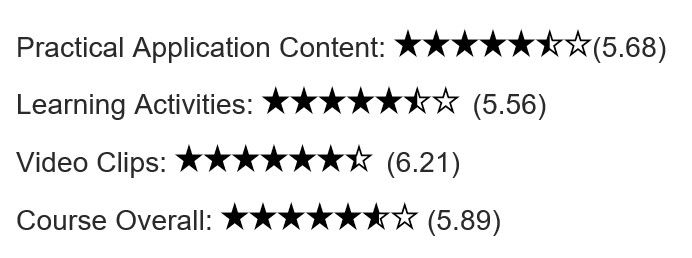Gentle Persuasive Approaches Community
In 2021, the Alzheimer Society completed a research study to evaluate the success of the Gentle Persuasive Approaches program, a dementia care training, for family and friend caregivers. Read below to see the results of the study.

To view a summary of the results of the GPA Community research study, click here.
About the GPA Community Project
While GPA is already used across Canada with formal caregivers for people living with dementia (i.e. nurses, care aides, personal support workers), in this study, GPA Community was taught to family member caregivers and friend caregivers. Our goal was to learn about the impacts of the GPA Community on dementia care and to learn if this training is right to deliver to these caregivers.
The valuable feedback given by the participants has helped us determine how to best fit the GPA Community to meet the needs of these caregivers. By sharing their experience with the training, they helped us identify ways to improve it for others in the future.
What is the GPA Community Training?
Gentle Persuasive Approaches (GPA) Community is an online course that teaches caregivers how to respond respectfully, with confidence and skill, to behaviours associated with dementia. The GPA Community is delivered in two-parts:
Part 1: GPA eLearning: The GPA eLearning is delivered through short video tutorials and whiteboard animation, including a tile-matching exercise that reviews the modules. The eLearning has four learning modules: An Introduction to Personhood, Brain and Behaviour, The Interpersonal Environment, and Gentle Persuasive Techniques.
* Learners had four weeks to complete the eLearning, so they could learn at their own pace in the comfort of their home!
Part 2: Virtual interactive session: The goal of this session is to give learners a chance to ask questions and to practice the lessons learned during the GPA eLearning modules. During this session, learners will take part in group activities, case studies, discussions, and role-playing demonstrations.
What Were Participants Asked to Do?
Participation in this study was completely voluntary and involved the following:
- Participating in the GPA Community training.
- Answering three sets of questionnaires: the first before, the second immediately after and the third three months after the training. These questionnaires included questions about the participant’s age, gender, education, how long have they cared for persons living with dementia.Others questionnaires asked specific questions about their experience caring for persons living with dementia and participating in the GPA Community.
- Some participants chose to take part in a group interview three months after the training. During this interview, we discussed the participant’s experience participating in the GPA Community training and their observations of the impact of this program.
What Was the Experience of Participating in the GPA Community?
33 caregivers completed the GPA Community training! Using surveys and group interviews, we learned that since the training, participants have:
- A better understanding of the behaviours they see on a day-to-day basis.
- More confidence in responding to behaviours related to dementia.
- A better understanding that people with dementia are more than their diagnosis. They still have unique traits, needs, and feelings.
- A better understanding of the perspective of the person living with dementia.
- More empathy and compassion for the person living with dementia.
The majority of participants would suggest this online course to other caregivers. Participants have reported a moderate to high level of satisfaction with the training. They expressed that delivery methods of the training were “super engaging.” They also liked meeting other caregivers during the group session.
On average, participants rated the following elements of GPA Community:

How Could the GPA Community Training be Improved?
Participants felt the GPA Community training could be improved with:
- More group activities such as case studies and discussion.
- Less content for the healthcare professionals such as team meetings, talking to the supervisor, etc.
- More specific examples of behaviours related to dementia in the home environment. For example, incontinence, resistance to going to the doctor, etc.
- More practical techniques that can be immediately used at home.
- Less theoretical content such as acronyms and charts explaining concepts.
- A section on recognizing emotions that caregivers can experience while giving care. For example, feeling upset or overwhelmed. Also, adding resources on how to manage these emotions.
The GPA Community training was offered online instead of in-person because of the COVID-19 pandemic. When the pandemic is no longer an obstacle, most participants would prefer receiving the training in person. Participants want to meet others who have similar experiences in hopes that they can relate to them and feel less ‘’alone’’. They also preferred practicing the techniques learned in person.
Some participants suggested that the training should be followed up by support group sessions. The goal of this group would be to continue the sharing of stories and re-discussed learning.
What are the Next Steps?
Throughout the study, our goal has been to educate and support those affected by dementia. As a result of the findings from the study, the GPA Project Team will do the following to improve the experience of those on the dementia journey:
- Give recommendations to Advanced Gerontological Education Inc., the creator of the training, on how to improve the training for family and friend caregivers.
- Give recommendations to the Government of New Brunswick on how to expand this training in our province.
- Share the results with the general public, decision-makers, researchers, practitioners, and service providers.
We hope that an improved version of the GPA Community training will be accessible soon.
This project was funded by the Government of New Brunswick and the Public Health Agency Canada’s Healthy Seniors Pilot Projects. In addition, this project would not have been possible without the support of the following organizations: Alzheimer Society of NB, Horizon Health Network, Maritime SPOR SUPPORT Unit, Advanced Gerontological Education Inc., NB Continuing Care Safety Association, Bayshore HealthCare Ltd., Loch Lomond Villa, NB Home Support Association, and NB Special Care Home Association.


If you have any further questions about the GPA Project, please contact Isabelle Boulay: (506) 268-2686 or [email protected].
